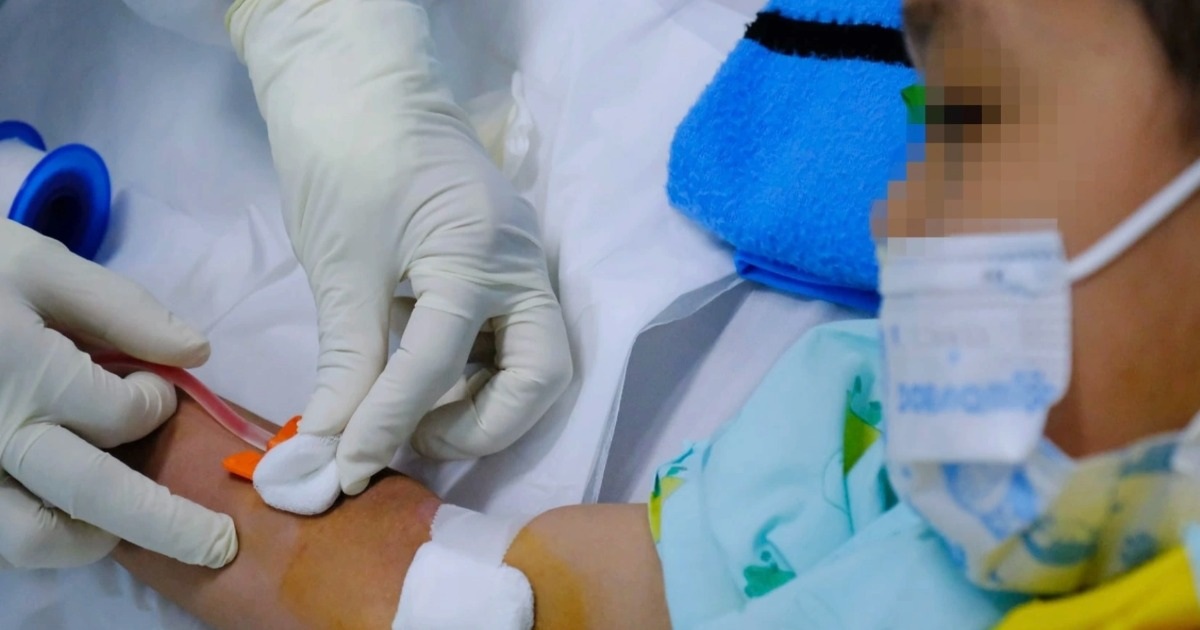Recently, news that artist Tan Beo was diagnosed with stage 5 (end-stage) kidney failure, following a period of stroke treatment, has saddened the public and his fans.
According to family information, the patient is undergoing blood purification at a medical facility and also had an arteriovenous fistula surgery to prepare for long-term regular hemodialysis.
Speaking with doctors, Tan Beo admitted that his condition was a result of his habits of eating salty foods, pickled dishes, spoiled eggs, fermented fish paste, and drinking beer late at night.
After 3 months of intensive chronic kidney disease treatment at a medical facility in Ho Chi Minh City, artist Tan Beo’s glomerular filtration rate improved, allowing him to avoid regular dialysis, though he must continue periodic check-ups, physical therapy, and close monitoring.
Over 10 Million Vietnamese Suffer from Chronic Kidney Disease
According to statistics from the Ministry of Health, Vietnam currently has over 10 million people suffering from chronic kidney disease. Among these, approximately 26,000 patients have reached end-stage, requiring regular dialysis or kidney transplantation to sustain life.
Dr. Huynh Ngoc Phuong Thao, Head of Nephrology – Hemodialysis Department at Pham Ngoc Thach University of Medicine Hospital, Ho Chi Minh City, stated that the causes of chronic kidney failure include glomerulonephritis, diabetes, hypertension, obstructive kidney disease, and genetic factors.
Notably, drug toxicity, the habit of self-medicating without a doctor’s guidance, and prolonged use of painkillers are also causes of kidney failure, as most medications are excreted through the kidneys.
In the early stages of the disease, clinical signs are often vague and not distinct, typically only detected through blood tests, urine tests, and ultrasound.
In later stages, patients often exhibit symptoms such as vomiting, nausea, loss of appetite, fatigue, sleep disturbances, decreased urine output, muscle pain, cramps, swollen feet, swollen ankles, itching, ascites (fluid in the abdomen), and pleural effusion (fluid around the lungs).
Warning: The Disease is Affecting Younger Individuals
More concerning is the rapidly increasing rate of young people developing the disease, with most only discovering it when the condition has become severe, due to a lack of regular health check-ups and complacency regarding initial warning signs.
Assoc. Prof. Dr. Nguyen Bach, Head of the Nephrology Department at Thong Nhat Hospital, stated that in addition to diabetes and high blood pressure, commonly seen in the elderly, glomerulonephritis (IgA nephropathy, often found in people aged 17-40) also leads to early kidney failure complications.
Statistics show that among 1,000 kidney biopsies at Thong Nhat Hospital, approximately 300 cases involved young individuals diagnosed with glomerulonephritis.
A common complication in kidney failure patients is blood vessel damage resulting from the dialysis process. Many patients suffer severe blockages and narrowing of central veins, causing swelling in the face, chest, and various other body parts.
“Increasingly, we are encountering more severe blood vessel damage. Patients undergo dialysis too late, requiring multiple catheters, which leads to complications like vascular stenosis and obstruction,” said Assoc. Prof. Nguyen Bach.
Chronic kidney failure severely impacts patients’ physical and mental health and can lead to dangerous complications. Patients experience fluid retention, leading to edema, high blood pressure, or pulmonary edema. A sudden increase in blood potassium levels can impair heart function and be life-threatening.
Additionally, the disease can lead to severe complications affecting the digestive system, nervous system, reproductive system, and cardiovascular system.
Kidney failure is divided into 5 stages. In stages 1-4, if detected early and treated diligently, patients can preserve kidney function for 5-10 years. When the disease progresses to the end-stage, patients require a kidney transplant or regular dialysis.
With advancements in medicine, more and more methods are not only helping patients sustain life but also improving their quality of life to be close to normal. Current kidney replacement therapies include hemodialysis, continuous ambulatory peritoneal dialysis, and kidney transplantation.
To effectively prevent chronic kidney failure, people need to raise their health awareness and undergo regular health check-ups. If diagnosed with the disease, patients must follow the specialist’s instructions and should not self-medicate.
Concurrently, it is necessary to control daily diet, limit salty foods, maintain physical exercise, and effectively manage hypertension and diabetes.


